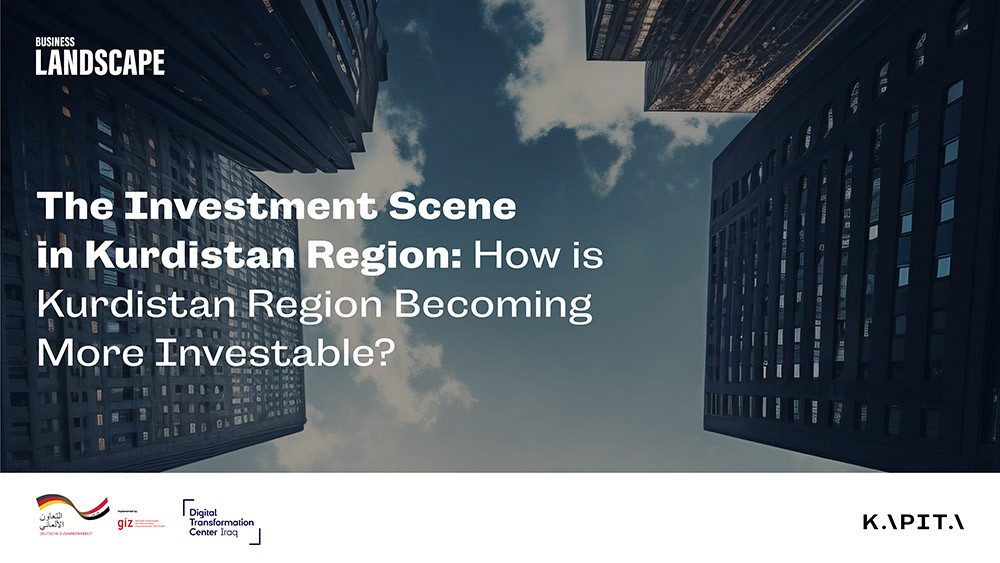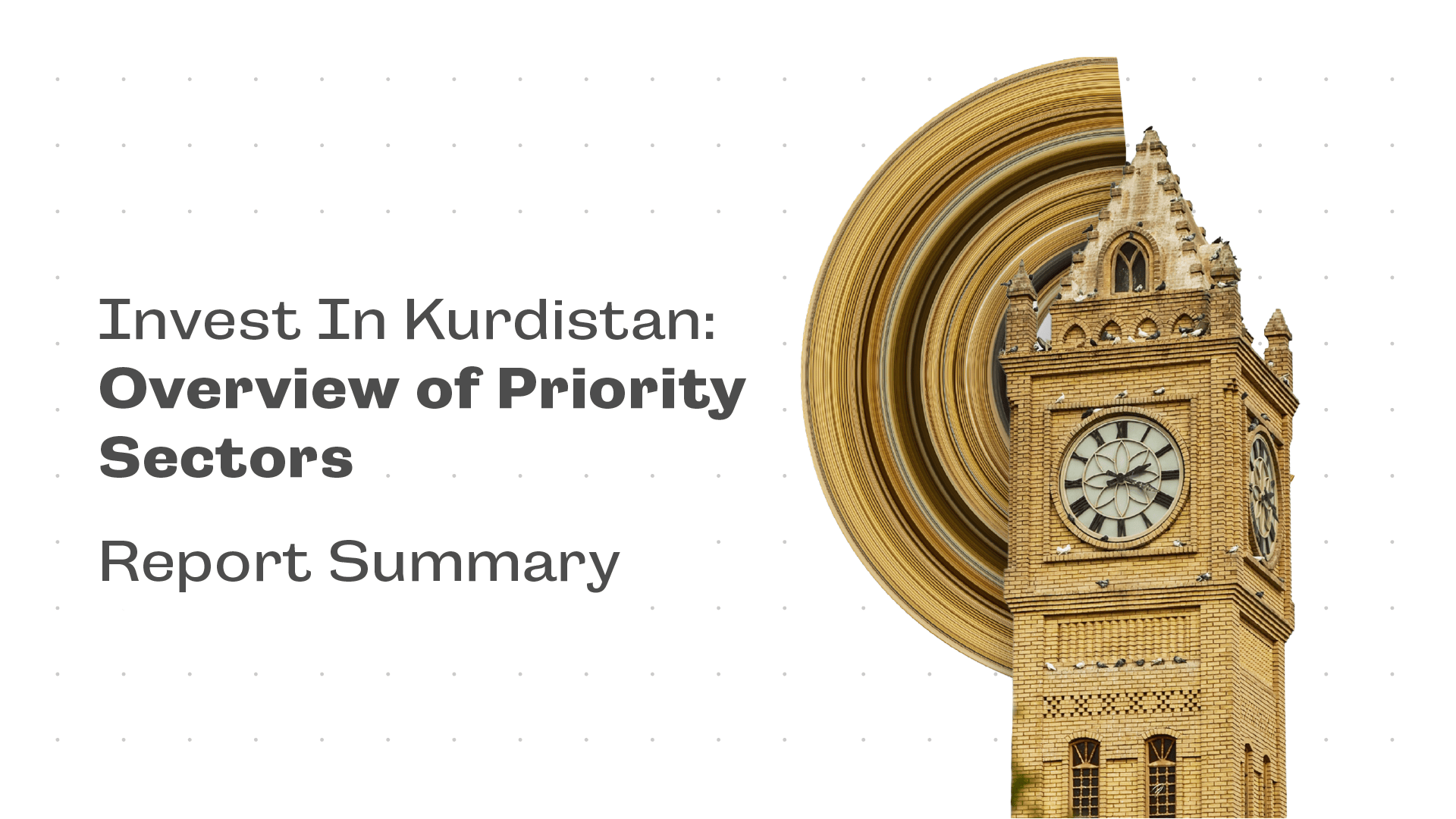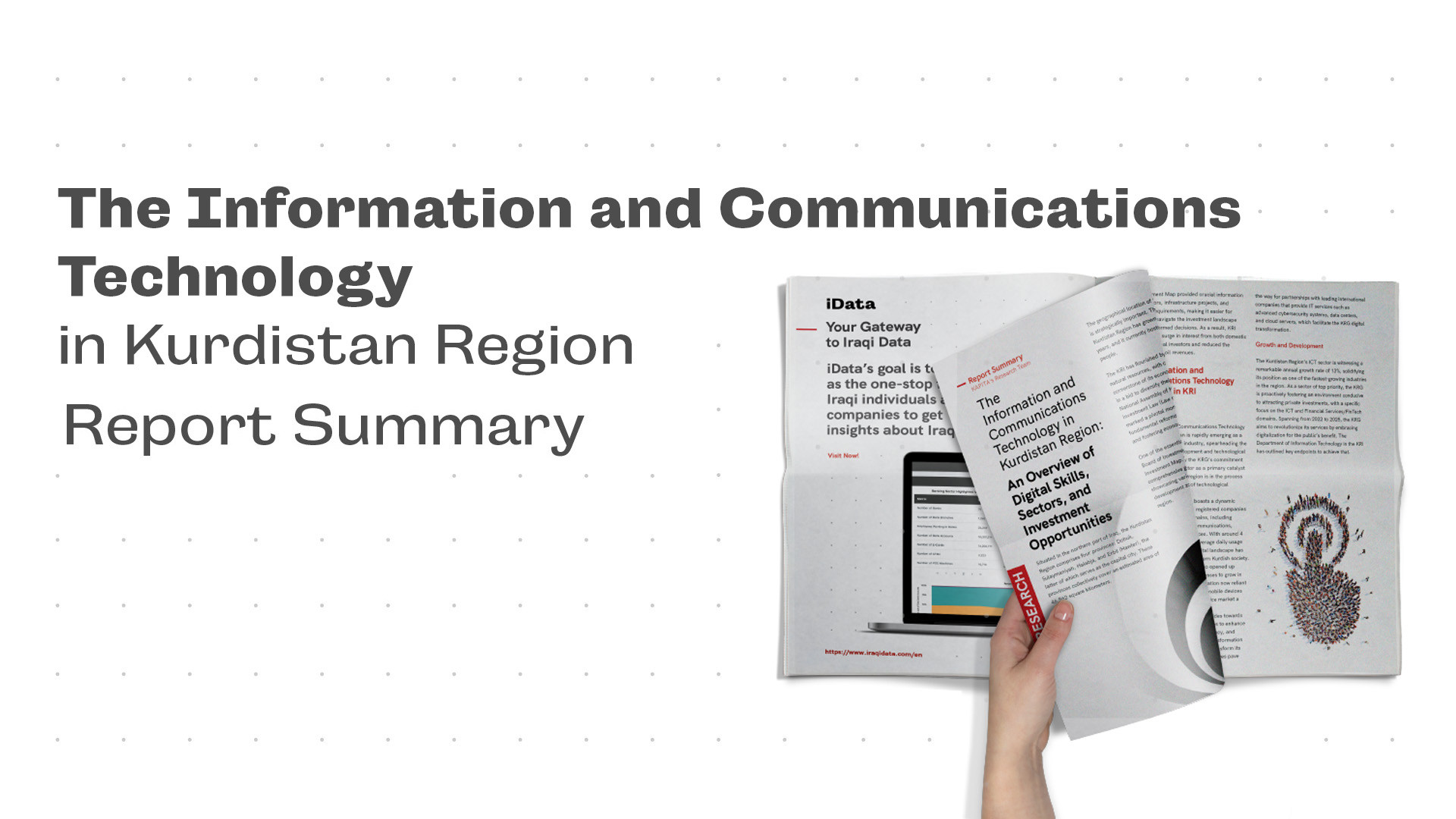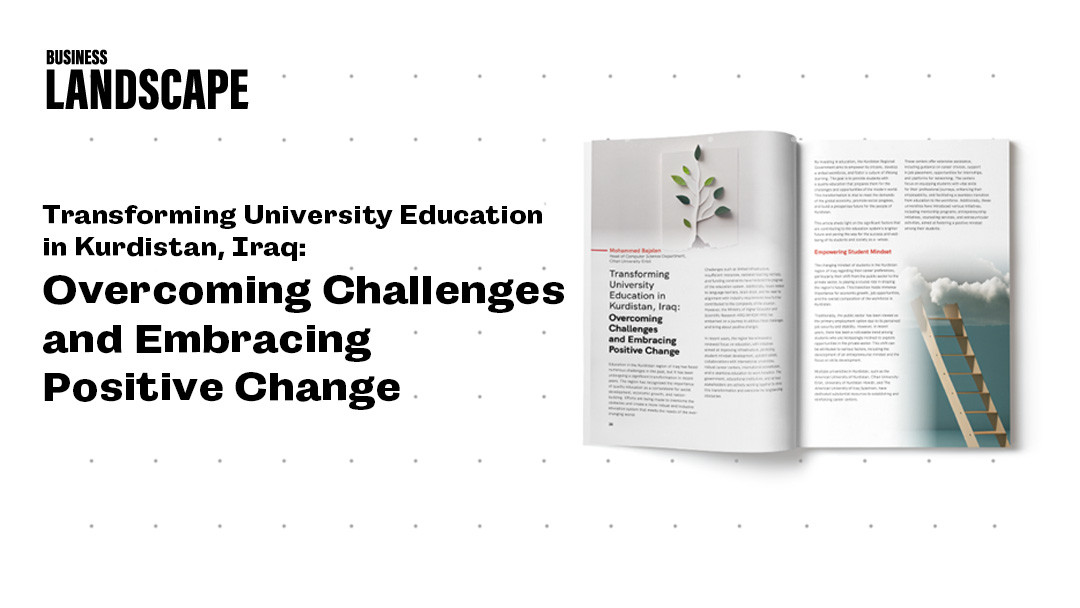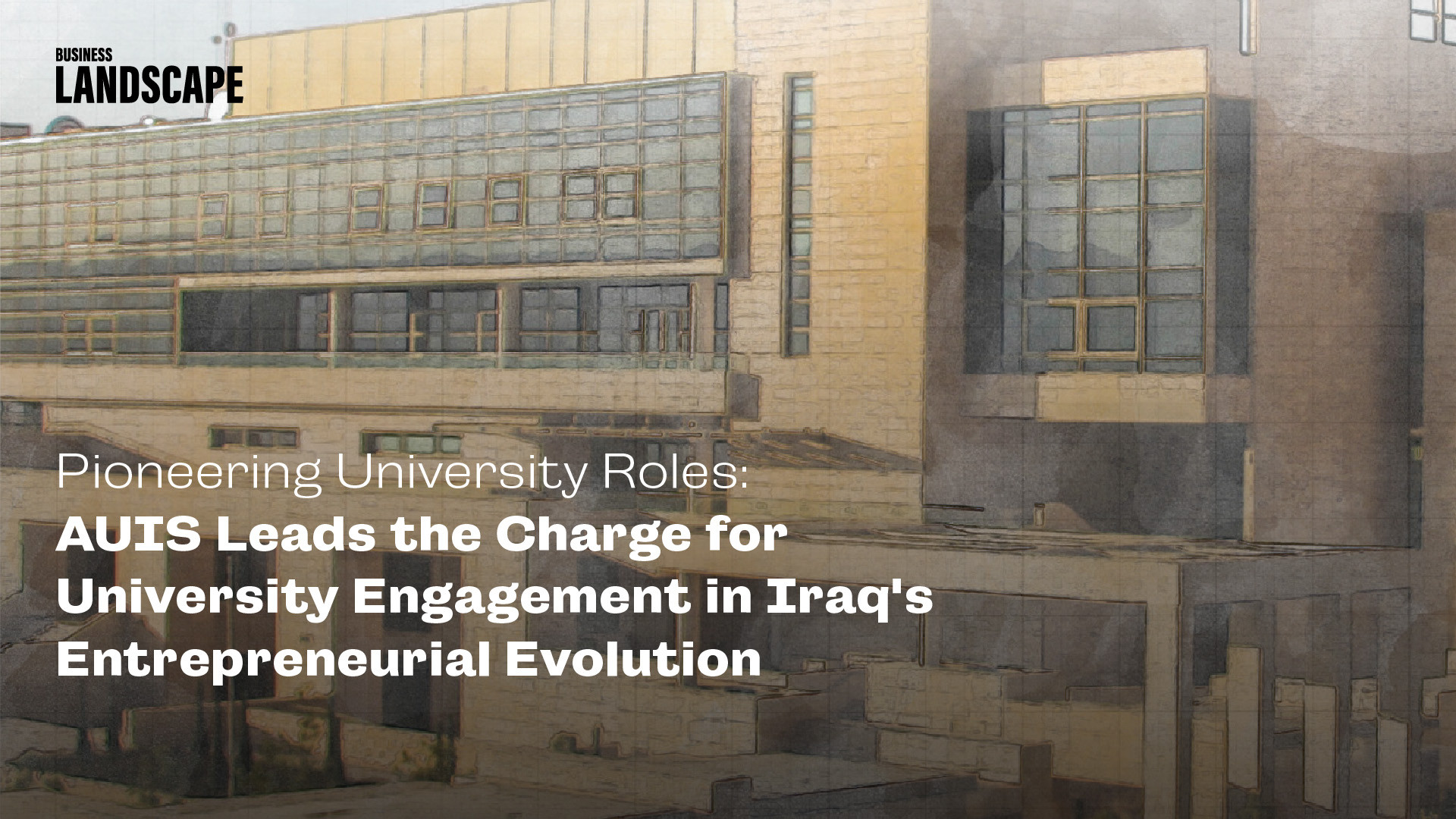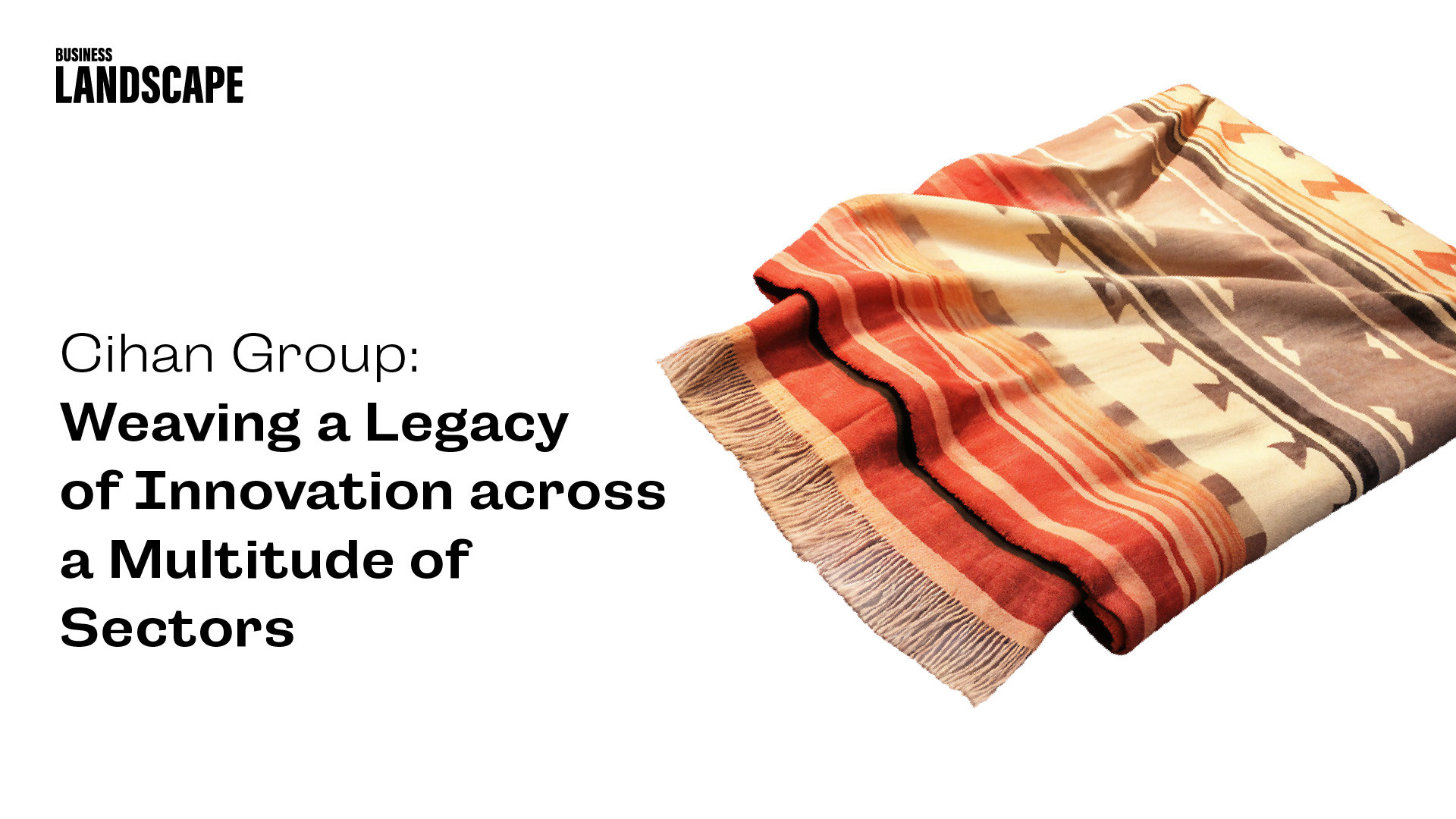The Investment Scene in Kurdistan Region: How is Kurdistan Region Becoming More Investable?
Invest Kurdistan
The Kurdistan Region of Iraq (KRI) has undergone a remarkable transformation since 2003. Emerging from decades of conflict and isolation, the Kurdistan Regional Government (KRG) has focused intensely on restoring stability, security, and economic development in the region. A critical pillar of this strategy has been attracting foreign direct investment (FDI) and creating a vibrant private sector
In 2006, the KRG took a major step forward by establishing the Board of Investment (BOI) to spearhead investment attraction efforts. The BOI was tasked with streamlining licensing processes, providing incentives, assisting investors, and creating a favorable business climate. Since its inception, the BOI has overseen tremendous growth across sectors such as industry, real estate, agriculture, tourism, and services. To date, the BOI has issued over 1,120 investment licenses with a total capital of more than $67 billion, including around $12 billion in FDI and joint ventures.
While impressive, these figures do not capture the full scale of investment, as they exclude the upstream and midstream oil and gas sectors that fall outside the Investment Law. The Kurdistan Region has come a long way in a short time. The BOI is proud of the progress made but remains focused on the future. With continued improvements to the investment climate and business environment, the Kurdistan Region is more investable today than ever before. For potential investors, the region presents exciting opportunities across many diverse sectors.
Laws and Regulations
KRG has taken meaningful steps to establish a supportive legal and regulatory framework aimed at attracting investment and enabling economic growth.
A major development was the passage of Investment Law No. 4 in 2006, which provides a comprehensive set of incentives, rights, and privileges to investors.
Key features include:
Tax and customs duty exemptions
Equal treatment of local and foreign investors
Land allocation privileges
Unrestricted profit and capital repatriation
100% foreign ownership
Legal protections against expropriation
Access to international arbitration to resolve disputes
The law consists of four parts, fifteen chapters, and twenty-five articles that collectively foster an environment conducive to investment. By reducing barriers to entry and offering guarantees to businesses, it has succeeded in drawing investors from many diverse sectors.
To organize and oversee the investment process, the KRG established the Supreme Council for Investment. This body issues decrees and regulations regarding licensing, approvals, land allotment, and other facets core to investment projects and investment climate.
More broadly, the region has prioritized creating a climate attractive to investors by instituting reforms emphasizing good governance. The KRG continues to be proactive in shaping a regulatory regime that protects stakeholders' rights and is in the process of amending the current law so that it will be in line with international best investment practices.
Companies Registration
The way a company is registered is critical to doing business and investing in any region or country. Streamlining the registration process and reducing the time required can have a significant positive impact on the economy. To facilitate this, the KRG recently launched an online portal for company registration, business.digital.gov.krd, providing investors with a user-friendly platform to submit applications electronically and track their status in real-time.
Under the legal framework of the Iraqi Companies Law No. 21 of 1997, as amended in 2004, a variety of legal entities can be established in the Kurdistan Region. Company registrations can now be completed within a mere 24 working hours, empowering investors to swiftly commence their business operations.
Upon successful registration, companies are issued a Unique Entity Number, granting them access to a range of essential governmental services. The process is overseen by the Ministry of Trade and Industry (MOTI), managed by the General Directorate of Company Registration, which is now responsible for company registration.
Local company types under the Companies Law encompass various options to cater to diverse investor needs:
Limited Liability Company (LLC): The most common entity type in Kurdistan, an LLC must have 25 or fewer shareholders, with a minimum capital requirement of 1 million IQD.
Simple Companies: These can be established by two to five individuals, each contributing to the company's capital either in cash or with a business share, and partners usually bear unlimited liability.
Sole Proprietorship: A business entity solely owned by an individual who assumes unlimited liability for all the company's obligations. The owner of a Sole Proprietorship needs to be an Iraqi citizen.
Joint Stock Company: Requires a minimum of five shareholders who subscribe to shares publicly and bear responsibility for the company's debts up to the nominal value of their subscribed shares. If the government participates, its shares must exceed 25%.
Joint Liability Company: Formed by two to 25 persons, each owning a quota of its capital, and they jointly assume personal and unlimited liability for all the company's obligations.
For foreign companies seeking to establish a presence in the Kurdistan Region, the branch registration process is straightforward. The parent company must have been incorporated for over a year, and the branch must maintain the same name and ownership structure as the parent company. The parent company retains both financial and legal liability for the activities of the branch. Moreover, the branch must appoint a statutory accountant and lawyer, both of whom must be Iraqi nationals, while the managing director can be of foreign nationality.
Crucially, foreign investors and business owners can engage in business activities or investments within the Kurdistan Region without the requirement of local partners, further encouraging international investment in the region, but they are encouraged and incentivized to partner with local investors and form joint ventures.
Digital Transformation
To improve governance and service delivery, and drive economic growth in the region, the KRG has embarked on a digital transformation journey. The KRG’s Department of Information Technology (DIT) is spearheading this initiative by working closely with all government entities to incorporate technology across sectors.
Some key achievements so far include:
Launching a national digital strategy outlining the vision, goals, priorities, and action plans for digitalization in the Kurdistan Region of Iraq (KRI) by 2025. The strategy aims to make KRG one of the top digital governments in the Middle East.
Creating a unified government portal (www.gov.krd) that combines separate ministry websites for easy access to news, information, reports, and e-services.
Construction of a data center to host all KRG services.
Introducing the e-visa platform (visit.gov.krd) to facilitate visa applications and boost tourism.
Launching an online business registration portal (business.digital.gov.krd) to simplify and expedite company registration.
The business registration portal, developed collaboratively between government departments, allows businesses and entrepreneurs to register businesses conveniently from anywhere while saving time and costs. It provides a transparent list of business activities and assists in protecting trademarks and company names as per international standards. This milestone in digitizing business registration will support economic growth in the region by encouraging startups and employment.
By recognizing the power of technology in governance and public services, the KRG has taken decisive steps to steer Kurdistan’s digital revolution. With initiatives like e-visa, unified government portal, and online business registration, the KRG aims to become a regional leader in digital government by 2025.
Infrastructure and Developments
To enhance connectivity and promote industrial development, the Kurdistan Region has made remarkable progress in developing its infrastructure. Transportation networks, electricity networks, and telecommunications have expanded since 2005. Two international airports, hundreds of kilometers of new roads, and high-speed internet reaching most areas have transformed connectivity.
Despite existing challenges and the need for many new projects, KRG is actively working to enhance infrastructure to present a promising business environment. Industrial zones, renewable energy projects, and transportation initiatives are strategic priorities. New industrial parks and special economic zones are planned across all districts. The Kani Spi agro-industrial park, which is currently being developed in Duhok, is designed to host hundreds of manufacturing, warehouses, and processing facilities.
Electricity is another crucial focus. With supply lagging demand, the government is keen to attract private investment in renewable energy and waste-to-energy projects through independent power producer (IPP) models. Two solar plants currently generate 3MW, with a 100MW solar project underway in Erbil. Hydropower is another promising area, and there are plans to build new dams in several areas.
Transportation mega-projects are also in progress and under study, including new highways, tunnels, and railways to support economic growth. The government welcomes private investment in public-private partnerships to develop these projects and invites partners to help build world-class infrastructure and unlock the region's full economic potential.
Key Sectors
The Kurdistan Region's economy is characterized by its diversified portfolio of key sectors. While historically known for its oil and gas reserves, the region has expanded into other sectors, including industry (manufacturing), tourism, agriculture, and Information & Communications Technology (ICT). By reducing its reliance on the oil sector and diversifying its economic base, the Kurdistan Region wants to mitigate risks associated with commodity price fluctuations and create a resilient investment and business landscape.
The region offers a wide range of opportunities for investors in all sectors, particularly agriculture (agrifood), industry, tourism, infrastructure, and services. The government's priorities lie in the agriculture, industry, and tourism sectors.
The agriculture sector in the region presents a diverse range of investment opportunities across its three main subsectors. The government has issued licenses for 40 projects, amounting to $1.1 billion in investments. Livestock and dairy farming hold promising prospects, catering to the growing demand for meat, dairy products, and related by-products. Crop cultivation is equally vital, benefiting from the region's fertile soil and favorable climate, enabling the cultivation of various crops like grains, fruits, and vegetables. Food processing plays a crucial role in the agriculture value chain, offering potential investment avenues by adding value to raw agricultural products.
The region's industrial sector is ripe with opportunities, particularly in two major subsectors. The government has issued licenses for 292 projects, amounting to $23.1 billion in investments. The petrochemical industry in the region benefits from the abundance of natural resources, enabling the production of various petrochemical products used in plastics, chemicals, and other essential materials. The manufacturing sector provides a diverse array of investment prospects, encompassing construction materials, light manufacturing, and the automotive industry, among others.
The tourism sector in the region encompasses numerous investment opportunities in cities and districts, including Erbil, Duhok, Sulaymaniyah, Halabja, Soran, Raparin, Garmian, and others. The government has already granted licenses to 189 projects amounting to $14.9 billion in investment, including notable ventures like Korek Resort Mountain and Zawa Resort, and many others.
Additionally, the region's diverse opportunities across the service, education, healthcare, real estate, pharmaceutical, and infrastructure sectors have seen high potential and an attractive landscape for investors in recent years. By leveraging the potential within each subsector, investors can expect high growth returns.
Foreign-Investment Friendliness
The Kurdistan Region offers a welcoming environment for foreign investors, with policies and incentives designed to attract foreign capital and expertise. The region provides a safe and stable operating environment compared to other parts of the country, thanks to its relative security and political stability over the past two decades.
The KRG has enacted investor-friendly laws and regulations that provide equal treatment to both foreign and local investors. Key incentives include land allocation, duty exemptions, unrestricted repatriation of investment profits and capital, and 100% foreign ownership of projects.
The Board of Investment established a dedicated Foreign Direct Investment (FDI) Unit to assist investors throughout the investment process, from initial exploration to business establishment and expansion. Services offered by this unit are free of charge and confidential.
Legally, foreign investors are guaranteed the ability to fully repatriate profits and investment capital. The region also allows 100% foreign ownership of any new project establishment under the investment law. Additional incentives are offered for projects in underdeveloped areas and joint ventures between foreign and local partners.
The region has attracted major international companies across various sectors. Notable foreign investors include Al Safi Danone, Carrefour, Lafarge, Hyatt Regency, Rixos Hotel, and Rotana Hotel among many.
The Initiatives of the KRG Board of Investment
The KRG Board of Investment (BOI) has taken proactive steps to improve the region's investment climate and attract greater foreign direct investment. Some of the key initiatives undertaken by the BOI include:
Establishing a dedicated body (FDI Unit) to assist foreign investors in their journey and also establishing the Invest Kurdistan brand to promote the region and its opportunities.
Decentralizing licensing by giving the rights to general directorates in provinces to accept and facilitate investment licenses. The BOI has also opened new general directorates in a few districts.
Working with international organizations, such as UNDP and IFC, to improve the investment climate and bring more investment to the region.
Signing MOUs with local universities and organizations to make new partnerships, especially for researching key sectors more and identifying potential opportunities.
Through these forward-thinking initiatives, the KRG BOI is working to position the Kurdistan Region as a competitive and business-friendly environment for foreign direct investment in the Middle East. The BOI remains committed to making ongoing improvements to investment policies, procedures, and promotion.
